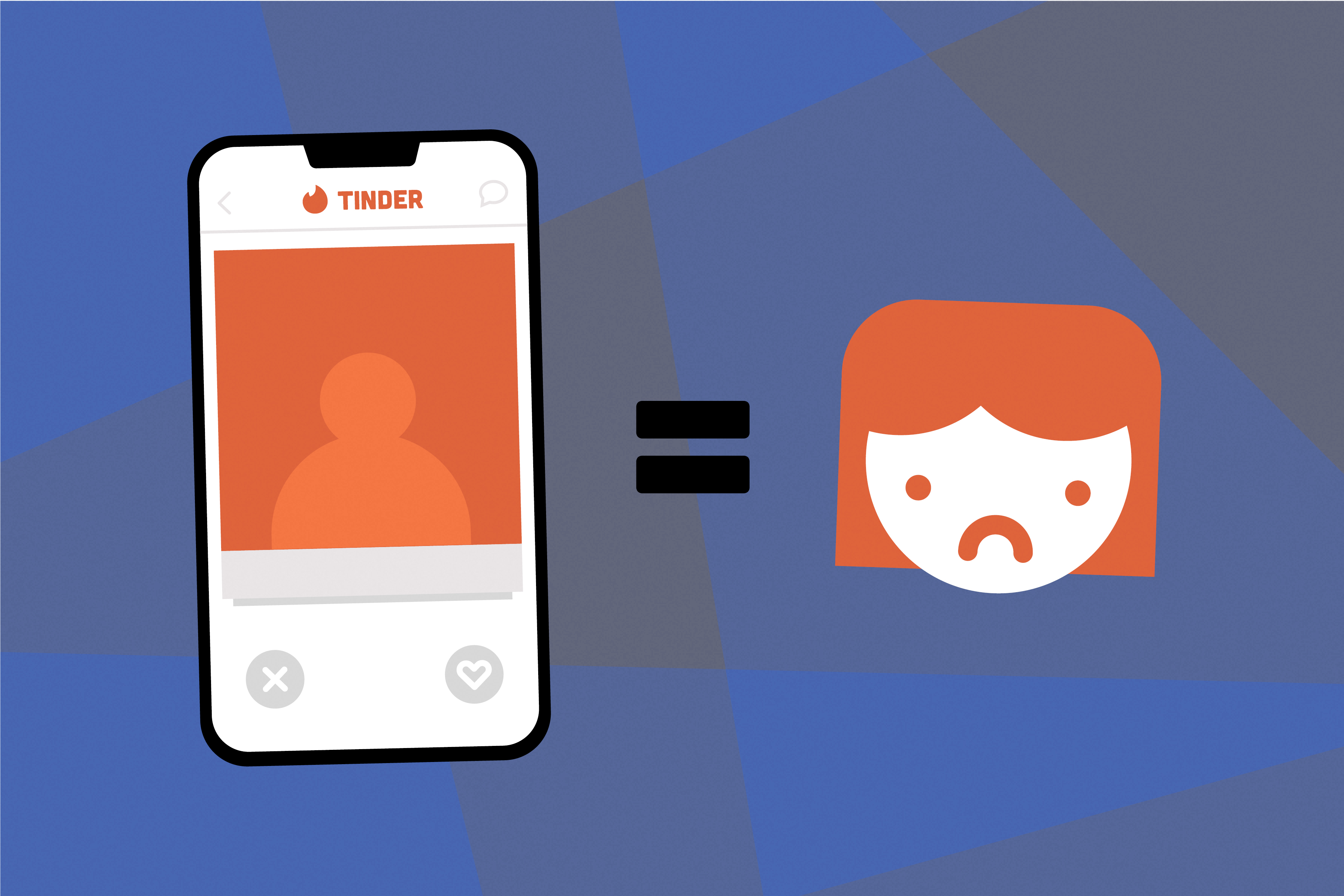
The dating app can further exploit the double bind that women experience related to sex
Tinder has long been considered a legitimate dating forum in the online world. The popular app, frequently used among college-age students, enables individuals to “swipe right” on those they find attractive or interesting. If the recipient swipes right as well, the two can converse, exchange contact information and from there, presumably, go on a date. It’s an easy way for people to meet one another in an environment like a university, which, while social, is not necessarily conducive to forming friendships. For example, many of the main social activities in the first quarter of the first year are drinking-related, which can often blur and confuse connections between people.
Those who are supportive of Tinder might say it’s a practical way to meet people without undergoing the potential awkwardness and uncertainty of a first date. The difficulty of knowing whether or not the other person actually likes you is eliminated; after all, if he or she has swiped right, that indicates some level of interest. In a way, Tinder allows people to get down to the brass tacks of dating without all of the initial he-likes-me-he-likes-me-not angst. Tinder proponents may also say it’s a way for people who might not otherwise have met to connect with one another.
In particular, Tinder is used among college first-years as an efficient way to gain social and, sometimes, sexual experience. The first quarter of one’s first year can be especially overwhelming. Students who have had limited freedom in high school might feel ill at ease in an environment with thousands of other students, none of whom they know personally. Tinder therefore provides a handy answer to this particular social anxiety and artificially creates connections between individuals. Additionally, in recent years, Tinder has come to represent the increasingly popular hookup culture at college. The easy and efficient “swipe-right” era of dating has come to the fore. And this has its downsides, especially for young women in search of heterosexual relationships.
Similar to social media, Tinder allows people to curate their lives to a certain extent and to present their best assets — both physical and personality-wise — to the world. Image retouching and careful use of cropping, however, often blur the lines between a person’s Tinder profile and their actual appearance and behaviors. This already sets a precedent of artificiality in terms of communication and can ultimately lead to disappointment for both parties. While women might join Tinder in hopes of building a more lasting personal connection with someone, this desire is not always mutual for their male counterparts. The disconnect between what different people want from their Tinder experience can lead to disappointment at best and emotional damage at worse. While one person may be interested in dating seriously, the other may be more invested in a casual hookup. This is not necessarily clear just from viewing someone’s profile, and often times the divide between the intent portrayed and the person’s behavior can be disconcerting.
What makes Tinder particularly complicated for women is the ongoing double bind that we experience in terms of sex. Refusing to hook up on the first or second date may invite the unwanted label of “prude.” However, young women who do choose to hook up during this short time frame may be deemed too “easy,” and the partner will move on to someone who seems less eager. This then perpetuates the twisted perception that many people still have of female sexual activity today. The emotional risk of pursuing online dating, coupled with the higher physical risk that women experience in sexually ambiguous situations like Tinder dates amount to personal costs often greater for females.
Tinder also has the potential to encourage emotionally vulnerable, mostly young men to embrace toxic masculinity. Because there’s usually not a pre-existing emotional connection between the two parties, the consequences for a person being sexually aggressive or uncommunicative are minimal. The ongoing controversy surrounding consent culture complicates this dynamic. While women are more likely to be raped by someone they know, casual setups also represent an unprecedented level of physical danger because Tinder is viewed by many as an ideal forum to solicit sexual encounters. And while some people may view a Tinder date as a direct invitation to sex, it can be both disconcerting and embarrassing for the other individual if this desire is not shared. This difficulty is acutely felt by young women, who are still pressured to stay silent regarding their own sexual needs. Saying “no” can often result in anger or outright rejection and indifference.
The image-based nature of Tinder means that, essentially, participants don’t really know who or what they’re signing up for when they pursue a connection. The “swipe right” concept usually limits people to pursuing others entirely on the basis of physical attraction. While this is important, attraction usually needs other elements, like intellectual and emotional compatibility, to be sustainable. Tinder thus embraces the culture of lookism — that is, making judgements and decisions based on the other person’s physical appearance, rather than on their character — and doesn’t often establish genuine connections between people.
It’s difficult to say whether or not this is any different than non-online dating. In general, romantic attraction is complicated, and there’s an almost unavoidable level of awkwardness involved in going on a date with someone for the first time. But instead of eliminating this uncomfortable stage, Tinder merely encourages its participants to skip ahead to the even more emotionally fraught territory of hooking up, where the motives of both parties may not be clear — even to themselves.
Written by: Rebecca Bihn-Wallace — rlbihnwallace@ucdavis.edu
Disclaimer: The views and opinions expressed by individual columnists belong to the columnists alone and do not necessarily indicate the views and opinions held by The California Aggie.



